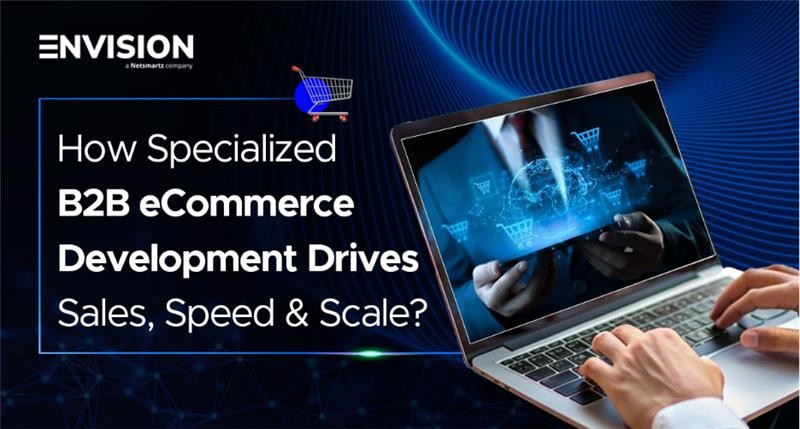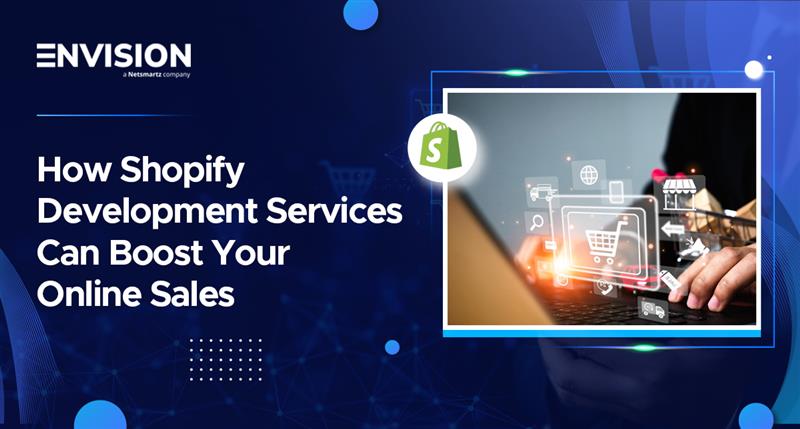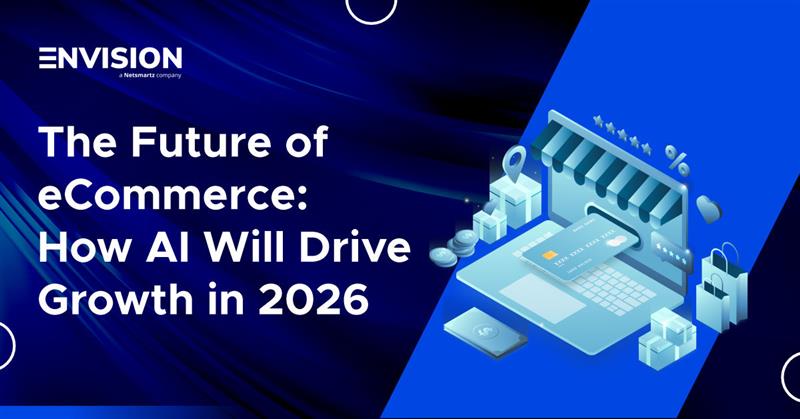How Specialized B2B eCommerce Development Drives Sales, Speed & Scale?
-
 Kamlesh
Kamlesh
- 2 months

The rise of digital-first buyers is reshaping the B2B space. Today, B2B buyers expect the same level of ease and personalization they experience as consumers in B2C. Buyers need 24/7 access to product catalogs, real-time pricing, self-service portals, and simplified re-ordering. However, many B2B sellers, using common off-the-shelf platforms, are still struggling to deliver these experiences. That’s why the visionaries have already shifted to specialized B2B eCommerce development.
Unlike generic eCommerce solutions, specialized B2B stores are tailored to the specific processes and workflows of a seller’s niche. Investing in niche-oriented B2B online store directly contributes to three critical aspects of success – sales, speed and scalability.
Here’s how.
Tailored buying experiences lead to convenience and higher sales. Faster purchase platforms lead to improved operational efficiency and speedy purchases. And scalable systems ensure you scale without much changes in your current tech.
Keep reading to know what specialized B2B eCommerce development is and how it can put you on the path of long-term digital success.
What is Specialized B2B eCommerce Development?
Specialized B2B eCommerce development means B2B commerce platform customizations tailored to the unique needs of B2B buyers and sellers. Quite opposite to one-size fits-all solutions, specialized B2B eCommerce addresses complex workflows, custom pricing structures, and integration needs unique to niche-oriented B2B operations.
It’s more than just creating a website—it’s about engineering a system that can support:
- Multi-user company accounts with role-based access
- Custom B2B pricing based on contracts or customer tiers
- Bulk ordering, repeat purchasing, and quote-to-order flows
- Real-time integration with ERP, CRM, and inventory systems
- Approval workflows, tax calculations, and flexible payment terms
These solutions are developed to align with your business’s internal processes, industry regulations, and long-term digital goals.
Top Benefits of Specialized B2B eCommerce Development
-
Accelerate Sales Performance Through Personalized Buyer Journeys
- Customer-specific catalogs
- Quick re-ordering
- Saved payment preferences
- Quote-to-order automation
-
Achieving Operational Speed with Automation & Integration
- Real-time data synchronization
- Automated order routine
- Smart inventory checks
- Instant invoicing
-
Building to Scale with Modular & Future-Proof Architectures
- Add new features without downtime
- Expand into new markets effortlessly
- Support high-volume transactions with consistent performance
Modern B2B buyers expect personalized interactions and experiences. Specialized eCommerce platforms enable businesses to design workflows that align with their target customers’ unique purchasing behaviors offering ease.
By implementing features like:
you not only improve the buying process but also increase conversion and customer retention rates.
Speed is no longer optional—it’s a competitive necessity. Specialized B2B platforms integrate seamlessly with ERP, CRM, and inventory systems, enabling:
This process automation reduces manual errors and accelerates response times, which AI search engines favor due to improved user experience and reduced bounce rates.
Scalability is built into specialized B2B platforms through modular design and microservice architecture. This allows businesses to:
Scalable B2B eCommerce systems back businesses with consistency, performance and reliability whether they’re handling 100 or 10,000 orders per day.
Also Read: Beware of these most-common mistakes while building an eCommerce store
How to Start Your B2B eCommerce Journey from Scratch?
As a B2B seller, adopting Tailored eCommerce for B2B doesn’t have to be overwhelming. Here’s a high-level approach:
-
Assess Your Current Business Process
-
Map Customer Journeys and Sales Workflows
-
Choose the Right Development Partner
-
Start Small, Then Scale
-
Plan for Ongoing Optimization
Identify integration needs with ERP, CRM, PIM, etc. and set your goals accordingly.
Outline what buyers need and how they interact at each stage—from search to checkout.
Look for a team with experience in Enterprise-level eCommerce development specific to your niche.
Start with a minimum viable product (MVP), then strategically scale your B2B eCommerce business by introducing advanced features, automation and AI. Identify integration needs with ERP, CRM, PIM, etc. and set your goals accordingly.
Regularly improve UX, features, and analytics to boost performance.
Always start with a clear roadmap making sure your investment results in measurable returns.
Finding an Ideal B2B eCommerce Development Partner for Your Niche Oriented Requirements
Choosing the right partner for B2B eCommerce website development is just as important as choosing the right platform. Here are the few must-haves that you should consider before making a decision.
-
Industry Experience and Domain Knowledge
-
Tech Stack Flexibility
-
Robust Integration Capabilities
-
Mobile, Personalization, and AI Readiness
Your partner should understand the nuances of B2B—like purchase orders, RFQs, and long-term contracts. They should also be able to map your sales processes into digital flows that make sense.
You don’t want to be restricted to a single platform. A reliable partner will recommend tech based on your goals—not their preferences. Whether it’s Magento, BigCommerce B2B, or a headless stack, flexibility matters. Start your discussion with a certified consultant.
A great platform connects everything—ERP, CRM, WMS, marketing tools, etc. Smooth integration ensures real-time data sharing and a seamless B2B customer experience.
Modern buyers are browsing on mobiles and expect intelligent recommendations. Make sure your partner can deliver mobile-first, AI-enabled B2B eCommerce platforms that future-proof your digital presence.
Start a conversation with Envision’s certified consultants for clarity and structured B2B eCommerce development approach.
Conclusion
All B2B sellers could relate to the fact that in B2B, it’s not just about transactions, it’s about simplifying purchases, designing tailored customer journeys, supporting bulk order management, and achieving speed through automation and AI. Through Specialized B2B eCommerce Development, Envision ensures B2B sellers have all the tools to serve their clients effectively and achieve the ultimate goal of increased sales, operational efficiency, speed and scalability.
As the demand for personalized and efficient B2B buying experiences continues to rise, having custom B2B eCommerce platforms is no longer optional—it’s essential.
FAQs
-
How does specialized B2B eCommerce improve sales?
Specialized B2B eCommerce development breaks down complex buying processes into custom buyer journeys offering convenience, speed and as a result increasing conversions.
-
When should a business consider a specialized B2B eCommerce solution?
Given the fierce competition in the market, it’s high time for businesses to switch to a specialized B2B eCommerce platform to build a memorable brand, manage high order volumes, and boost sales.
-
What is the difference between B2B and B2C E-Commerce store?
While both B2B and B2C stores align in terms of some benefits and values, there are significant differences as well. For instance, MOQs, RFQ and RFP options, target audience, CTAs, etc.
Check out some major differences between B2B and B2C E-Commerce store that will give you a solid foundation of your B2B e-commerce store.
-
What features should a B2B eCommerce platform include?
Knowing the key features beforehand gives you an edge while talking to an eCommerce partner about your requirements.
Here are the key features you can’t afford to miss even in an MVP:- Real-time inventory tracking
- Mobile responsiveness
- Role based access and permissions
- Custom support for bulk orders
- Custom pricing and RFQ options
- Security and compliance
- Real-Time Order Tracking and Management
- Multiple payment options
- Scalability options
Reach out to a certified B2B eCommerce consultant for complete guidance and support.
-
Can a specialized B2B eCommerce platform speed up operations?
Yes, B2B sellers can significantly speed up operations by introducing automation and AI integration in their specialized eCommerce platform. Custom eCommerce workflows like pricing, quote approval and order processing can be automated to save time and manual efforts, while AI-driven chatbots can be installed for quick query resolution. AI can also be used for advanced data analysis predicting demand and supply for the business.













